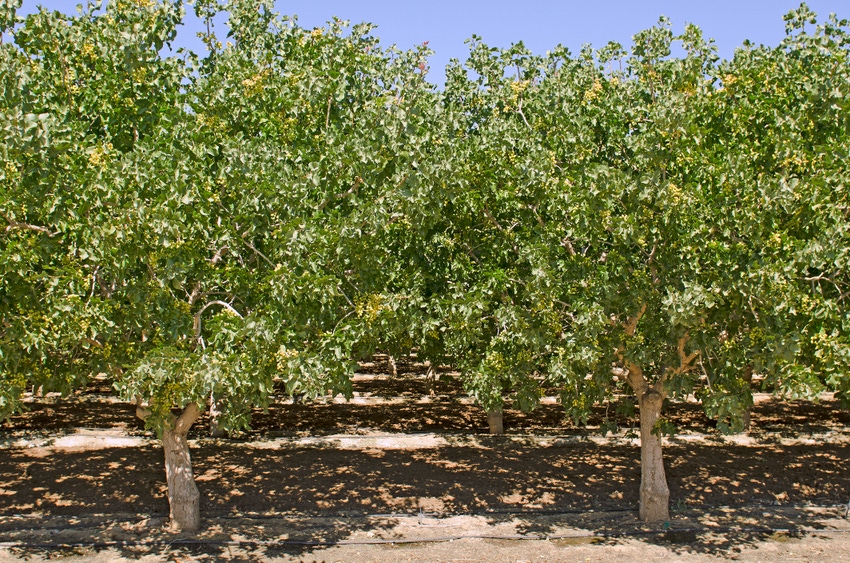December 14, 2016

A seaweed extract could mitigate water stress and offer protection from soilborne pathogens of pistachio.
Elizabeth Fichtner, a University of California Cooperative Extension farm advisor for Tulare and Kings counties, has been researching the use of Ascophyllum nodosum, a seaweed extract, during research in the laboratory and in the field.
She is not alone in learning the beneficial effects of the extract. Other researchers have separately found the extract beneficial when used with plants or trees including petunia and tomato transplants, and potted citrus.
The extract increased shoot growth and mitigated water stress on deficit irrigated citrus trees.
Fichtner says seaweed products are used in a variety of ways by those in agriculture, mostly as a plant growth stimulant. Growers often include seaweed extracts in fertility programs.
However, many do not know the rationale behind their use, says Fichtner.
About 18 million tons of seaweed products are produced annually. Some products are sold for plant nutrition or as plant growth regulators.
Fichtner says its value in agriculture, however, is more likely related to the product’s ability to induce plants to produce beneficial secondary metabolites that offer protection from diseases and abiotic stresses.
However, the extract is “not a silver bullet,” she notes, but its efficacy in mitigating several pathogens and lessening water stress is backed by scientific data.
Fichtner focused on one pathogen in pistachios, Phytopythium helicoides. It is soilborne and can result in root rot and tree mortality, particularly in the summer.
“It likes hot weather,” she says.
The extract is in liquid form, and she did her research with a product with the brand name Acadian Seaplants out of Nova Scotia.
Fichtner says it appears that the extract helps supplement naturally occurring betaines, osmolytes that boost protection against osmotic stress, drought, high salinity, or cold temperature.
Natural accumulation of betaines would otherwise be insufficient to ameliorate stresses, she says.
Her field studies focused on the Golden Hills variety with a Randy pollinator on UCB-1 seedling rootstock. Trees studied were in their seventh leaf. The extract was applied through a drip line at two quarts per acre.
There were seven applications between April and October, though Fichtner said an influence on water stress was observed after only two applications.
During the research, midday stem water potential measurements were taken. Initial girth was noted, and there was a July foliar analysis. Researchers looked at yield and studied nut quality, but no data is yet available on quality.
There was no statistical difference between treated and untreated trees in yield.
Fichtner said the application of the extract dropped foliar sodium levels by 14 percent and chloride levels by 12 percent.
In pathology studies, Fichtner said plants challenged with P. helicoides exhibited wilting within one week of inoculation. Plant treatments with either seaweed extract or phosphites offered protection from the disease, reducing plant decline and mortality.
Fichtner acknowledged project assistance from commercial pistachio growers, College of the Sequoias students enrolled in the SURGE (Student Undergraduate Research Group Experience) program, and the Lindcove Research and Extension Center where laboratory and greenhouse experiments were conducted.
The research was funded by the California Pistachio Research Board with additional support from Acadian Seaplants.
In 2017, Fichtner will conduct studies with seaweed extract on pistachios and almonds in saline soils. She’ll seek to determine the potential to mitigate salt stress with the extract, and also assess the tree’s mechanism that influences plant stress.
Future studies will continue to focus on the growth promoting properties of the seaweed extract, plus the influence it has on plant protection.
You May Also Like




